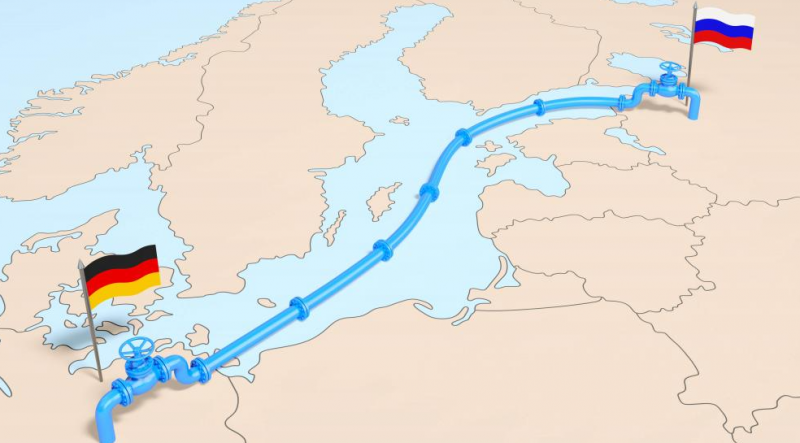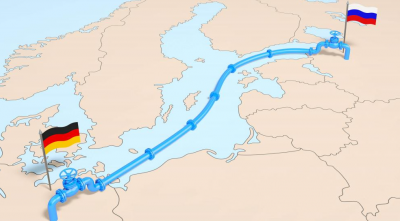The American and Western sanctions on Russia and its president, Vladimir Putin, have raised numerous questions and sparked much speculation. The most prominent question is: Why was the energy sector excluded from these sanctions? Why were oil and gas avoided in these sanctions, despite Europe halting work on the "Nord Stream 2" pipeline, even though these two commodities are considered the most crucial for the Russian economy?
A report published by the American magazine "Time" on its website attempted to answer these questions. It stated that there were no sanctions imposed on the Russian oil and gas sectors, which provided 36% of Russia's national budget last year. Ukrainian MP Oleksiy Goncharenko said in a video posted on Twitter: "We need real sanctions... We need to impose a ban on Russian gas and oil because every barrel of Russian oil and every cubic meter of Russian gas is now filled with the blood of Ukrainians."
"Time" indicated in its report that the European Union relies on Russia for 35% of its natural gas, although some European countries depend on it more than others. The tensions over Ukraine have exacerbated the European fuel price crisis that began last year. The report states: "Sanctions on Russian energy will lead to a global price increase, and the fears of such sanctions have already had an impact; natural gas prices in Europe rose by 51% last Thursday, and crude oil, of which Russia is the second-largest exporter in the world, hit a seven-year high at $105 per barrel. When these sanctions did not materialize later that day, prices fell slightly, and the flow of Russian gas through Ukraine to Europe actually increased."
However, experts do not rule out a stricter strategy regarding Russian energy from the European Union and the United States as the war in Ukraine unfolds. Michael E. O'Hanlon, director of foreign policy research at the Brookings Institution, said: "In a way, no one has fully accepted the gravity of the situation, and many are still conducting business as usual. That is likely to change in the coming days and weeks."
The report from "Time" describes the invasion of Ukraine as a turning point for Russia's oil and gas exports, as European Union officials revealed that they are working on adopting a strategy to reduce dependence on Russian energy as quickly as possible, including a target to cut fossil fuel use by 40% by 2030.
The report indicates that "Europe’s options for reducing its need for Russian gas in the short term are extremely limited. While LNG shipments might help in the meantime, Europe could struggle to maintain those imports at the current high levels once cold weather returns and demand in Asia picks up. Additionally, renewable energy projects that Europe aims to roll out to replace natural gas will not be ready overnight."
Analysts believe this situation could begin to change in the next three to five years, as the Ukrainian crisis has forced Europe to reconsider its future energy relations with Russia. In its upcoming strategy to phase out Russian gas, the European Union is expected to introduce new rules requiring utilities to fill storage facilities during summer to avoid shortages in winter and set more ambitious targets to reduce fossil fuel use in the coming years. This will necessitate member states to ramp up spending on renewable energy sources and improve building insulation and other efficiency modifications.




